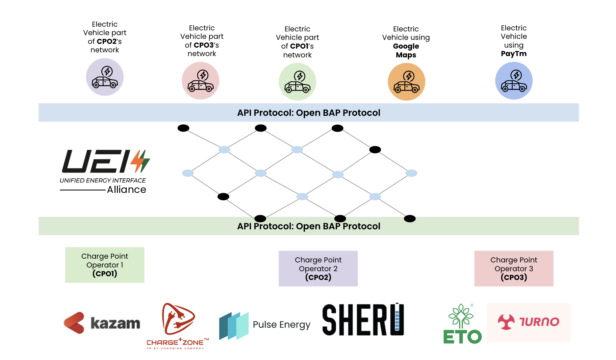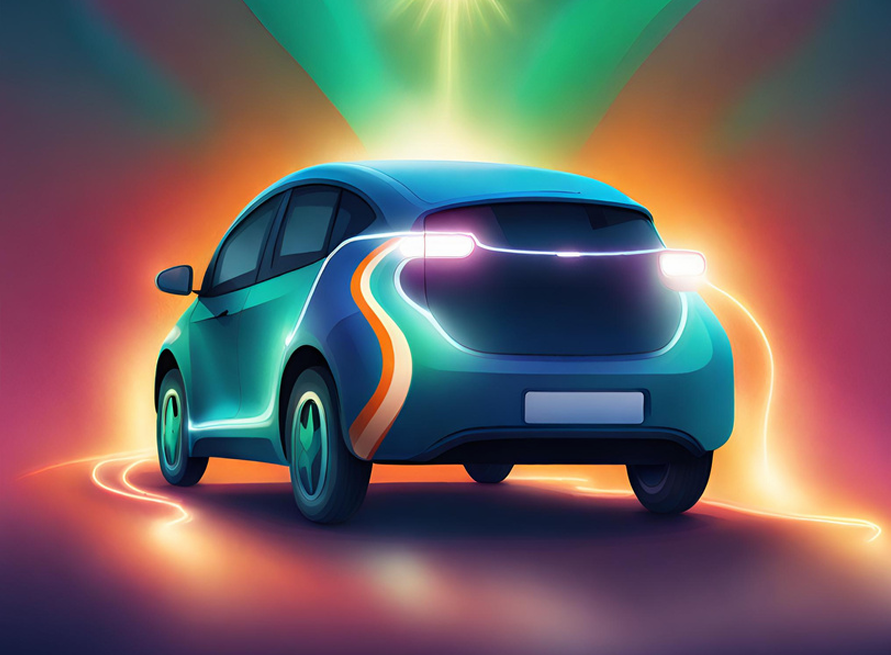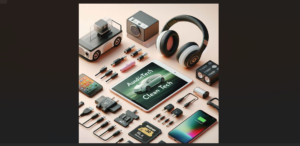In a rapidly evolving world towards sustainable and environmentally conscious solutions, the Electric Vehicle (EV) industry has emerged as a formidable force, promising a cleaner, greener future. At the heart of this global shift stands India, the fastest-growing economy in the world with immense potential to lead the electric mobility revolution.
The Indian EV battery market size is expected to grow from USD 16.77 billion in 2023 to USD 27.70 billion by 2028, at a CAGR of 10.56% between 2023 and 2028, indicating that India’s EV battery industry landscape is at the cusp of a remarkable expansion.
Read more: ESG in India: How India’s organizations are contributing for a sustainable future
While a majority of EV Original Equipment Manufacturers (OEMs) have developed battery pack assembly facilities in-house by using imported lithium-ion cells or purchasing imported battery packs, VC-funded startups such as Ather, Ola Electric, Cosbike, and Pure EV continue to supply their battery packs to most two and three-wheeler OEMs, and this is a reflection of recent market trends.
Current Indian EV Market Trends
In 2022, 25% of EVs sold in India were purchased by fleet operators, including for taxis. In recent years, EV sales in India have significantly increased because it is a cleaner and more efficient alternative to gasoline-powered vehicles. With the growth of sales of EVs in India, the Indian government has set a target to achieve 30% electrification of India’s vehicle fleet by 2030.
The Economic Survey 2023 predicts that India’s domestic EV market will witness a 49% compound annual growth rate between 2022 and 2030, and the number of EV units sold annually will touch 10 million by 2030.
Along with all this news of scaling, comes the Financial Times report that Tesla will be sending a team to India to scout locations for a US$2-US$3 billion EV plant. If the auto giant finally decides to enter India, the reason could be the visible EV push in India from the government and business organizations, big and small.
Government Outlay
In March, the Central Government of India put an outlay of INR500 crore for four months beginning from April for 2 wheelers and 3 wheelers to promote e-mobility in the country.
This support will catalyse our efforts, enabling many OEMs like us to innovate, scale and accelerate the adoption of electric two-wheelers across India. It’s a win for the economy, environment, industry players and every Indian consumer
Hari Kiran, Co-Founder and COO, eBikeGo
Hari Kiran, Co-Founder and COO, eBikeGo, says, “We are thrilled about the new scheme by the government of India as it is yet another significant step towards sustainable mobility in India. This support will catalyse our efforts, enabling many OEMs like us to innovate, scale and accelerate the adoption of electric two-wheelers across India. It’s a win for the economy, environment, industry players and every Indian consumer”.
Formation of the Unified Energy Interface
For a regulated EV push, in April, some 20 energy companies have come together to create an alliance for an open energy network called the Unified Energy Interface (UEI), aimed at facilitating payment and transaction interoperability within EV charging networks.
The Alliance includes member companies likeChargeZone, Pulse Energy, Kazam, Sheru, Trinity, Turbo, etc. Leading public policy think tanks and research organizations specializing in energy, climate, and technology, such as the Rocky Mountain Institute, World Resources Institute amongst many, are also joining the consortium in an advisory capacity to advance the initiative.

While members like ChargeZone have enabled their chargers to be discovered and transacted over the UEI network, companies like Kazam and Pulse Energy who are tech enablers for UEI have enabled their customers to discover, pay and charge at any of their chargers via the UEI network.
The UEI Alliance is dedicated to fostering global development, adoption, and compliance with unified standards for energy-related economic transactions between digital platforms. Their focus areas include scaling transaction volumes within the UEI network to enhance efficiency and reach. The Alliance is committed to ensuring that the protocol in action remains relevant and adaptable to market needs, guiding technical evolution and governance. Additionally, they promote a scalable model that facilitates the easy integration of both new and existing participants, streamlining processes and expanding their impact.
As the transportation sector shifts towards greater electrification, it’s crucial to ensure that EV drivers can access charging infrastructure easily, regardless of their vehicle’s brand or the charging network. This approach improves convenience for EV drivers by eliminating the need for multiple access cards or accounts. Furthermore, it fosters competition and innovation among charging point operators, as they are motivated to provide better services and prices to attract customers
Raj Kumar, the Executive Director, Trinity
Raj Kumar, the Executive Director, Trinity, said, “As the transportation sector shifts towards greater electrification, it’s crucial to ensure that EV drivers can access charging infrastructure easily, regardless of their vehicle’s brand or the charging network. This approach improves convenience for EV drivers by eliminating the need for multiple access cards or accounts. Furthermore, it fosters competition and innovation among charging point operators, as they are motivated to provide better services and prices to attract customers.”
In order to accelerate the world’s transition to EVs, we need systems that are interoperable, and do business with each other seamlessly
Akhil Jayaprakash , CEO, Pulse Energy
Akhil Jayaprakash , CEO, Pulse Energy said, “In order to accelerate the world’s transition to EVs, we need systems that are interoperable, and do business with each other seamlessly.”
Reji Pillai, CEO, India Smart Grid Forum (ISGF) said, “India Smart Grid Forum has been promoting peer-to-peer (P2P) trading of green electricity from rooftop solar PV systems; and we have undertaken three successful pilot projects on P2P trading of green energy on blockchain platform in India. The key challenge in scaling up the P2P projects is the payment settlement mechanism between the peers involved in the P2P trading. In the present scenario, the payment against P2P trade has to be managed by the respective utilities.
With UEI, we could enable P2P payments directly between the peers while the energy wheeling charges for the utility can be levied in the electricity bills by the utility. This is going to unleash a green energy revolution in the country
Reji Pillai, CEO, India Smart Grid Forum (ISGF)
“With UEI, we could enable P2P payments directly between the peers while the energy wheeling charges for the utility can be levied in the electricity bills by the utility. This is going to unleash a green energy revolution in the country.”
The UEI network has even received the green light from Department of Science and Technology in their latest e-Mobility White Paper, and more importantly it’s built on Beckn protocol – a Made in India open source protocol that enables open networks like Open Network for Digital Commerce (ONDC), Unified Health Interface (UHI), Open Network for Education and Skilling Transformations (ONEST) and many more.
EV Adaption is on the Uptick
That EV adaption is rampant in India is evident from the fact that EV companies have been expanding across the country. In April, BNC Motors, an electric two-wheeler manufacturing company, opened its distributorship and dealership showroom in Jaipur, Rajasthan, marking its entry into North India.
In March, BluSmart, an Indian eMobility ride hailing service and EV charging infrastructure network, touched a milestone of 7,000 EVs on the BluSmart fleet. Currently, BluSmart operates Southeast Asia’s largest fleet consisting of Tata Tigor EV, MG ZS EV, BYD E6 which are operating in the mega-cities of Delhi NCR and Bangalore.
Read more: The search for that supreme EV battery & perfect charging network is on
In January, GreenCell Mobility, a electric mobility solutions provider partnered with the Director of Urban Transport selected Greencell Mobility to deploy 150 intra-city electric buses to Ayodhya for the momentous Ram Mandir consecration ceremony. This fleet will play a crucial role in providing intra-city transportation service to an estimated 2 million devotees within Ayodhya from mid-January to end of February, including the day of the ceremony and the surrounding days, marking a significant period for pilgrims and believers.












